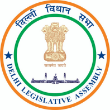- A resolution is one of the most important procedural devices to raise discussion in the House on a matter of general interest. It is a self contained independent proposal submitted for the approval of the House and drafted in such a way as to be capable of expressing a decision of the House.
- Rule 92 of the Delhi Assembly Rules states that a resolution may be in the form of a declaration or may be in the form so as to record either approval or disapproval by the House of an act or policy of Government or convey a message or command, urge or request an action, or call attention to a matter or situation for consideration by Government or in such form as the Speaker may consider appropriate.
- A member or a Minister can move a resolution. Resolutions moved by private members are termed as Private Members’ Resolutions and those moved by the Government are called Government Resolutions. Under Rule 89 a private member has to give notice of his resolution at least twelve days in advance to the Assembly Secretary. In the cases of Government resolutions the notice period is seven days. However, the Speaker can allow shorter notice (Rule 90).
Conditions of admissibility of Resolutions: The Speaker decides the admissibility of a resolution and in his discretion he can amend the form of the resolution to make it more acceptable. No resolution or amendment raising substantially the same question can be moved within one year from the date of the moving of an earlier resolution Rule 93 lays down the conditions of admissibility:
“In order that a resolution may be admissible, it shall satisfy the following conditions, namely:
- It shall be clearly and precisely expressed,
- It shall raise substantially only one definite issue,
- It shall not contain arguments, inferences, ironical expressions, imputations or defamatory statements:
- It shall not refer to the conduct or character of persons, except in their official or public capacity.
- It shall not relate to any matter which is under adjudication by a Court of Law having jurisdiction in any part of India, and
- It shall not reflect upon the conduct of the President as distinct from the Government of India or of the Lt. Governor as distinct from the Government.”
Precedence of Private Members’ Resolutions : The relative precedence (priority) of notices of resolutions give by members are determined by ballots which is held in the chamber of the Assembly Secretary. The date and time of balloting are informed in advance to the Members and they are free to witness the ballot. Normally three resolutions are selected for a given day. The resolutions are taken up on the private members’ day i.e Fridays as decided by the Committee on Private Members’ Bills and Resolutions. The Committee decides the day on which the resolution is to be taken up and the time to be allotted for each resolution.
Moving of Resolutions :
- On being called by the Speaker, the member in whose name the resolution stands in the List of Business formally moves the resolution and makes his speech. If the member when called upon is absent and no other member has been authorised to act on his behalf the resolution shall lapse. Other members can also participate in the debate and move amendments if any. (The purpose of an amendment is either to modify a question before the House with a view to make it acceptable or propose a different alternative to the House. Notice for amendment has to be delivered to the Secretary two clear days before the date of discussion. However the Speaker, can in his discretion allow the amendment to be moved without advance notice.) The concerned Minister replies to the debate. After the members and Minister concerned have participated in the debate, the mover of the resolution may exercise his right to reply. Thereafter the amendments are put to vote and disposed of. Finally, the Speaker, places the main resolution before the House for voting. A member who has moved a resolution or an amendment to a resolution cannot withdraw the same except by leave of the House.
- A copy of every resolution that has been passed by the House is forwarded to the Minister concerned and he has to inform the House about its status in the next session.



